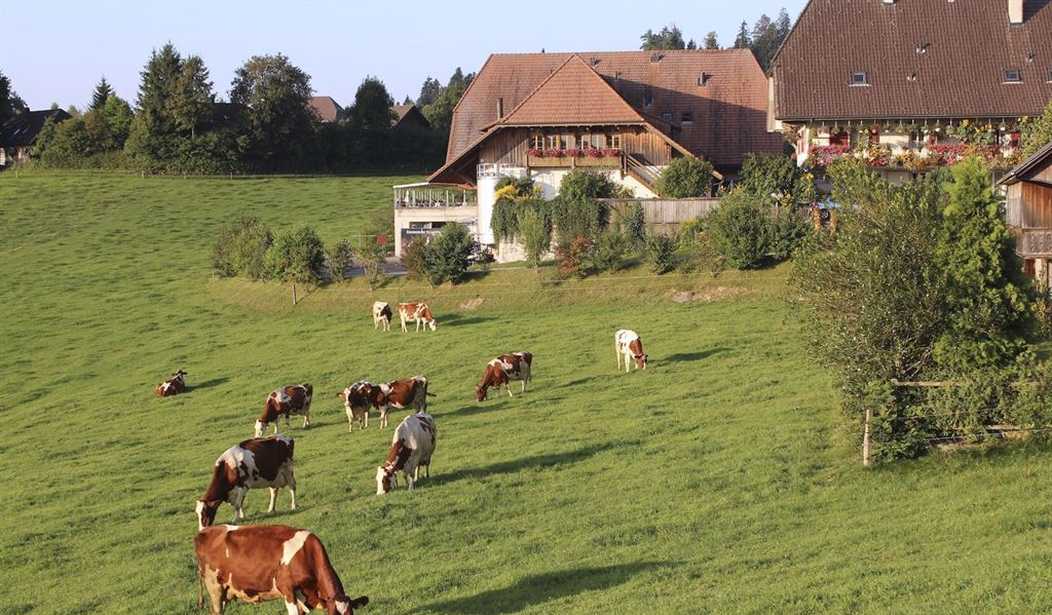One of the many giveaways tucked into the American Rescue Plan, passed earlier this year, was a program designed to provide relief to farmers who were negatively impacted by the pandemic. Any farmers approved for the offer would be able to have any loans they took out fully paid off by the government with an additional stipend of up to 20% of the value of the loan handed out in cash. There was one catch in the application requirements, however. In order to qualify, the farmer had to be Black, Hispanic, Latino, Asian-American, or Pacific Islander. In other words, no white farmers needed to apply. This prohibition spurred multiple lawsuits brought by white farmers in nine different states. On Thursday, a federal judge ordered the program to be placed on hold while the court reviews it. (NY Post)
A federal judge has put the brakes on a nearly $4 billion Biden administration effort intended to provide debt relief to farmers of color, noting that the program doesn’t even consider the financial status of applicants — just their race.
The relief program, launched in March under Biden’s American Rescue Plan Act, paid up to 120 percent of the loans for farmers or ranchers who are black, Hispanic, Latino, American Indian or Alaskan native and Asian American or Pacific Islander.
The $3.8 billion initiative drew an April lawsuit in Wisconsin Federal Court by 12 white farmers and ranchers from nine states — who said they were excluded from the program due to their race.
This wasn’t the first of these race-based offers that Joe Biden and the Democrats slipped into the relief bill. We previously looked at the Restaurant Relief Fund (RRF) that was established under the same bill and likewise excluded white restaurant owners. It too was shut down by the courts for further review.
The judge deciding this case, William Griesbach, a George W. Bush appointee, followed the same logic put forward in the RRF challenge. While racial exclusions have been upheld by the courts in the past, there are specific requirements that must be met in order for the government to enact such restrictions. One of the first is that the authorizing agency, in this instance the Department of Agriculture, must be shown to have discriminated against specific minority groups in the recent past. No such incidents have been identified.
The judge also noted that there was another significant shortcoming in how this program was structured, even worse than the flaws in the RRF. There is no requirement for the applicants to demonstrate their financial circumstances, showing that they had suffered financial hardship during the pandemic. In other words, you could be one of the lucky farmers whose crops or livestock remained in demand and was able to continue business in typical fashion and still qualify to have your loans paid off, assuming you are a minority. Meanwhile, a white farmer who was completely shut down and on the verge of bankruptcy couldn’t even apply.
Judge Griesbach concluded that the discrimination built into the program was based entirely on racial preferences with no compounding factors. He wrote, “The obvious response to a government agency that claims it continues to discriminate against farmers because of their race or national origin is to direct it to stop: it is not to direct it to intentionally discriminate against others on the basis of their race and national origin.”
How that sort of reasoning wasn’t immediately obvious to the members of Congress who approved this scheme originally is something of a mystery. Or perhaps they did realize it and they simply didn’t care. If you’re just giving away “free money” to people without requiring any evidence of hardship and basing the criteria for the program solely on race, there’s another word to describe the plan. It’s reparations, only going by a different name. And it’s also racist. So much for judging people by the content of their character, I suppose.








Join the conversation as a VIP Member